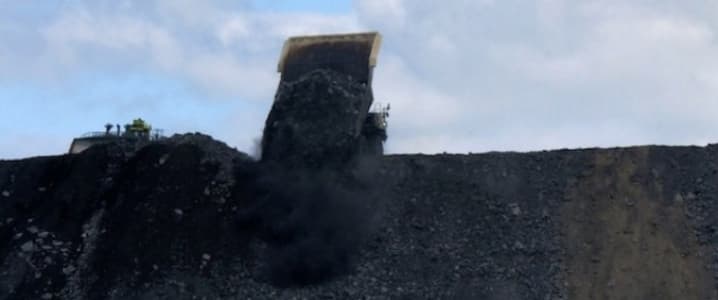Even as coal miners struggle with an epic decline in their business, including headwinds on regulatory, legal, and economic fronts, the industry faces another test that is just over the horizon – one which could prove an existential threat to the long-term business model. That test is the ability of the industry to access coal reserves that are held on federal land.
The Obama administration put in place a moratorium on new coal leases on federal land earlier this year. That moratorium has been in place for about six months now and has another 2.5 years to go. The plan was predicated on the view that it is time for the government to revisit and re-examine its decades-long approach to deriving value from coal on federal lands. The Obama administration is concerned about whether coal extraction is leading to enough benefits to justify the potential costs in the form of health and environmental impact.
The moratorium was predictably lauded by environmentalists but denounced by industry and politicians in western states where federal coal leases provide significant numbers of jobs and help bolster state coffers.
Now, there are calls emerging for that moratorium to be made permanent. So far, the current moratorium is still temporary, but if Democrats retain the White House in November, it is all but certain that the ban will continue and possibly be made permanent.
If the ban is made permanent, it won’t immediately impact existing coal operations. The existing leases are contracts which cannot be easily broken or abrogated. Those leases give coal operators access to roughly a 20-year supply. At the same time though, without new leases, coal’s future will increasingly be endangered.
Related: IEA: Gasoline Glut Could Cause Oil Price Rout
In particular, it is likely that equity investors are going to be even more hesitant to invest in coal companies, either through the public equity markets or through private transactions, if coal leases on federal land are abandoned altogether. Combined with the current economic headwind buffeting coal, the act of eliminating new coal leases would essentially amount to a medium-term plan to kill the coal industry.
Coal leases on federal land account for about 40 percent of all coal production – so while stopping production from federal lands by itself would not shut off coal production, it would result in the same amount of fixed cost overhead being piled onto a production output that was half of previous levels. This in turn would likely lead to the demise of the overall industry as coal becomes even more uneconomical versus alternatives.
On the other side of the coin, if coal is killed in the U.S., that should represent a boon to its direct competitors, natural gas and to a lesser extent solar power. Fracking in particular would likely gain a long term boost – about 2 percent annually in incremental demand – from the demise of coal leases on federal land. That’s not big enough to get investors excited in the short-term of course, but the death of coal would lead to greater long-term growth for the fracking industry overall and long-term success for shareholders.
By Michael McDonald of Oilprice.com
ADVERTISEMENT
More Top Reads From Oilprice.com:
- Is Iran’s Claim About Doubling Oil Exports Just Hype?
- Bacteria: A New And Unexpected Energy Source
- India Taking Advantage Of Crude’s Weakness


















